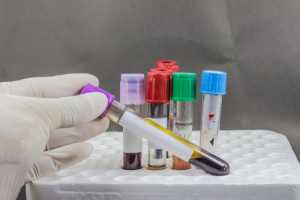 A Coumadin clinic serves patients on anticoagulants. Anticoagulants are often called “blood thinners” because these types of medicines work on the clotting system in the body to help prevent the formation of blood clots. Anticoagulants are prescribed for a variety of conditions, and regular monitoring and adjustments are necessary to make sure each condition is appropriately treated. The clinic works in close contact with any referring healthcare providers to ensure that patients on these medicines are closely followed in an effort to reduce the risk of complications, such as bleeding, from the medicine.
A Coumadin clinic serves patients on anticoagulants. Anticoagulants are often called “blood thinners” because these types of medicines work on the clotting system in the body to help prevent the formation of blood clots. Anticoagulants are prescribed for a variety of conditions, and regular monitoring and adjustments are necessary to make sure each condition is appropriately treated. The clinic works in close contact with any referring healthcare providers to ensure that patients on these medicines are closely followed in an effort to reduce the risk of complications, such as bleeding, from the medicine.
The majority of patients who are referred for treatment are anticoagulated with Coumadin. This blood thinner requires regular blood testing to tell the healthcare provider how much or how little the medicine is working to prevent blood clots. The Coumadin Clinic provides INR testing using state-of-the-art instruments. The INR test usually requires only a simple finger stick blood draw, and the result is available within seconds. As soon as the results are available, the Coumadin Clinic health care provider has a face-to-face visit with the patient where the results are discussed. A bleeding risk assessment is conducted, education is provided, and adjustment of medicine dosing, if necessary, is determined prior to leaving the office. The patient is then provided with written instructions about what was discussed during the visit, and when to return for future testing. The referring healthcare provider is contacted immediately about any potential problems the Coumadin Clinic health care provider discovers at the time of the visit. The INR results are sent to the referring healthcare provider at the end of each visit.

